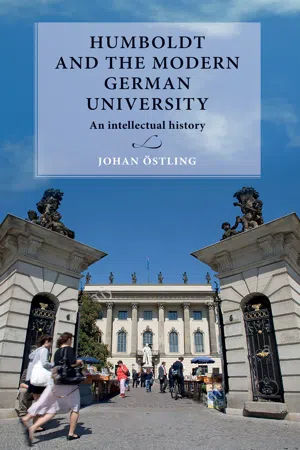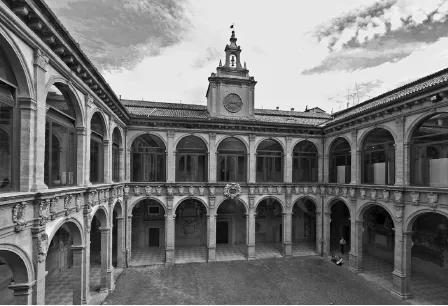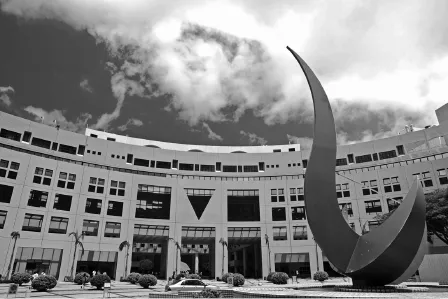![]()
1
The history of the university
The university and historiography
The university has a grand and extensive past. On ceremonial occasions it tends to be presented as the European societal institution with the longest unbroken tradition, alongside the monarchy, the judicial system, and the Catholic Church. It ought to be possible to write the rich history of the university employing dissimilar focal points; it should be possible to vary its theme. Nevertheless, it is remarkable how limited the historiography of the university has been – and still is.1
As a genre, university history is an old phenomenon. During the sixteenth and seventeenth centuries, Europe's learned community was inspired by the anniversary celebrations of the church to create a secular commemorative culture of its own. The earliest writings of university history were produced against this background, their principal task being to celebrate the alma mater. At the end of the eighteenth century, when historiography gradually developed into a form of professional scholarship, academic publications on the history of universities began to appear. Behind these lay a growing need for scholarly self-reflection; but it was the academic anniversaries that continued to give rise to the great majority of works of university history. This situation remained unchanged during the nineteenth and twentieth centuries.2
Thus there has been, since the very beginning, a close relationship between university history and the historical jubilees of the academy. Modern historians have pointed out that while this symbiosis has resulted in a large number of publications of university history, the historiography itself has left much to be desired. Sivert Langholm has suggested that the history of universities must be emancipated from the ‘jubilee syndrome’ and needs to contain a critical dimension. He writes, ‘Laudatory speeches should be held at jubilees, but the one genre should not be confused with the other’.3
However, the criticism does not stop with the fact that a good deal of such university history has consisted of self-justification. A significant majority of all works published during the twentieth century dealt with individual universities, works that were almost without exception written by academics with strong connections to the universities in question. Sheldon Rothblatt speaks of ‘the house history, the general biography of a single university’. Far from all of these writers were historians, and they were far from always linked to newer currents within historical research. In spite of the fact that many books were sound and based on solid empirical investigations, too many writers neglected to put their respective universities into wider social, political, or intellectual contexts. These authors were limited by their own complacency.4
In addition to the jubilee syndrome and the focus on an author's own university, another characteristic can be distinguished in the historiography of the university. Based on German evidence, Matthias Asche and Stefan Gerber argue that university history as a genre has flourished in periods of academic crisis and rapid change. They highlight the decades around the year 1800 and the period from the founding of the German Empire to the First World War as illustrative examples. During these periods the university and its understanding of itself was rocked to its foundations, and this seems to have given rise to a need for examining the historical development of the institution. It is a noteworthy observation. Asche and Gerber see a limitation here, because that connection makes the field of university history over-sensitive to temporal phenomena: not only is it influenced by the recurring academic jubilees, it also tends to flourish whenever the university system goes through rapid change. The first aspect is certainly true, and it has hampered research in the history of the university. However, I find it difficult to see that the second circumstance is a significant problem. Important historical writing feeds off of contemporary issues; it takes hold of and reflects the predicaments of its own time. If anything, the fact that university history is brought to the fore whenever the academic world is being restructured is a testimony to the importance of the topic.5
The scholarly history of the university that was written during the past century had varying emphases, but broadly speaking four specific trends dominated. In the beginning of the twentieth century, scholars engaged in a form of Geistesgeschichte in which history was described as a series of consecutive ideas about the nature of the university where the distinction between ideal and reality was not always obvious. Another important approach focused on the university as an institution. Its organisation, administration, financing, and so on were analysed from the perspective of structural history. In the 1960s and 1970s a current of social history emerged, and the social conditions and recruitment mechanisms of the academic system came under scrutiny. The fourth trend, derived from the history of science, regarded the university as primarily an arena of science and scholarship. This approach dealt with disciplines and research environments, but also with individual researchers and over-arching paradigms.6
Since the mid-1990s, the history of the university has had something of a renaissance: the field has been vitalised, not least in the German-speaking world. Like the subject of history per se, university history has been transformed through the influence of linguistic and cultural theories. The rituals, myths, and conceptual worlds of the academy have become central areas of research. Other catalysts have been gender history, media history, and studies of systems of power and organisational systems. The chronological focus has shifted, and the modern era has been brought into focus. Several analysts, among them Sylvia Paletschek, have connected this reawakening within university history to the radical changes in academic reality around the year 2000. In Germany, in addition, the experiences of two dictatorships have led to a need for a historical reckoning, a kind of academic Vergangenheitsbewältigung (approx. ‘coming to terms with the past’). The many studies of the universities under the Nazi and Communist regimes have raised burning issues concerning the relationship between politics and science/scholarship and the responsibility of the individual researcher.7
Despite the existence of important impulses for renewal, much of the university history that is being written is still embarrassingly conventional, as if the historiography is shackled by generic demands and jubilatory expectations. This is unfortunate; the subject contains too many potential insights to be left to collectors of anecdotes and writers of chronicles. For this reason, I will present a framework drawn from intellectual history and the history of knowledge which may provide university history with relevant themes and methods.
University history as intellectual history and history of knowledge
Writing university history as intellectual history may seem puzzling, almost tautological in fact, because the history of ideas as an academic field has traditionally included the history of universities. In this case the history of ideas should primarily be understood as an equivalent of what is known in English as ‘intellectual history’. Peter E. Gordon has discussed what distinguishes this field from others in an instructive manner. Defining the field as ‘the study of intellectuals, ideas, and intellectual patterns over time’ is factually correct; but in order to create a clearer focus, he compares intellectual history to the ‘history of ideas’. In the latter case, researchers have traditionally concentrated on key ideas and how these have changed over the course of history. ‘An historian of ideas’, writes Gordon, ‘will tend to organize the historical narrative around one major idea and will then follow the development or metamorphosis of that idea as it manifests itself in different contexts and times.’8
One advantage of this approach is that it is possible to discern intellectual similarities and continuities even when the chronological distance between two phenomena is very great. The classic representative of this type of history of ideas was Arthur O. Lovejoy and his The Great Chain of Being (1936). Although Lovejoy's own arguments were more complex than many later scholars have been willing to admit, he was accused of espousing a kind of Platonic view of ideas, where major thoughts and concepts were fundamentally the same throughout history and different manifestations of them were simply variations on eternal themes.9
A radical alternative to this older form of history of ideas was expressed by Quentin Skinner and what would become known as the Cambridge School. In a famous essay from 1969, Skinner attacked a context-free, diachronic history of ideas à la Lovejoy. Instead Skinner argued for the notion that ideas can only be understood in specific historical contexts, as responses to contemporary questions or as interventions in ongoing debates. In a large number of studies on the history of political thinking, he and his successors analysed how so-called speech acts worked in both well-known and not so well-known texts. The Cambridge School has, in its turn, been criticised for, among other things, limiting the concept of context and reducing history to a kind of rhetorical struggle.10
Peter E. Gordon's version of intellectual history represents a fruitful attempt to bridge the gap between Lovejoy's and Skinner's extreme positions. Gordon considers ideas to be ‘historically conditioned features of the world which are best understood within some larger context’. The crucial point is the context of the ideas in question – whether this consists of institutions, social environments, economic factors, or broader cultural and linguistic patterns. Sometimes the context is toned down in favour of a more internalist analysis, but in general the aim with this approach to intellectual history is to introduce the ideas into larger structures or locate them in relation to other contemporary forces.11
This is the spirit in which I write the history of the university as intellectual history. At the centre is an intellectual reflection on...


